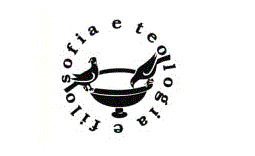


L’articolo offre alcuni spunti utili per elaborare una teologia del dialogo interreligioso facendo leva sulla rivisitazione dell’ontologia classica, ripensata come ontologia agapica o relazionale. Questo ripensamento permette di intravvedere dentro l’unità e l’unicità di Dio una costitutiva ulteriorità, tematizzata dalla teologia trinitaria, già a partire dagli autori della patristica greca. Così l’incontro e il confronto tra le religioni risulterebbero possibili – al di là della retorica di una prossimità spesso fraintesa come improbabile omogeneità – grazie al riconoscimento delle differenze e alla valorizzazione delle alterità. A monte di tale prospettiva c’è, più che un Dio in comune, il Dio comunione che accomuna i credenti.
Parole chiave: Dio, monoteismo, ontologia relazionale, religioni, dialogo
The article offers some useful ideas for developing a theology of interreligious dialogue by leveraging the reinterpretation of classical ontology, rethought as an agapic or relational ontology. This rethinking allows us to glimpse within the unity and uniqueness of God a constitutive ulteriority, thematized by trinitarian theology, starting from the authors of greek patristics. Thus the encounter and confrontation between religions would be possible – beyond the rhetoric of a proximity often misunderstood as unlikely homogeneity – thanks to the recognition of differences and the enhancement of otherness. Upstream of this perspective there is, more than a God in common, the God-Communion that unites believers.
Keywords: God, monotheism, relational ontology, religions, dialogue